The ENTJ Personality Type and the Enneagram
How does your Enneagram type impact your ENTJ personality type? Today we’re going to combine the world of Myers-Briggs and the Enneagram into a journey that will help you to get even deeper into understanding yourself and the nuances of what motivates you.
As with all typology systems, the Myers-Briggs® system can only tell us a certain amount about who you are as an ENTJ. The MBTI® primarily focuses on how someone takes in information (through Intuition or Sensing) and how they prioritize decisions (through Thinking or Feeling). The Enneagram is a different system entirely, which focuses on desires, fears, childhood wounds, virtues, and vices. You may meet two ENTJs who look drastically different from each other because each have a strikingly different Enneagram type.
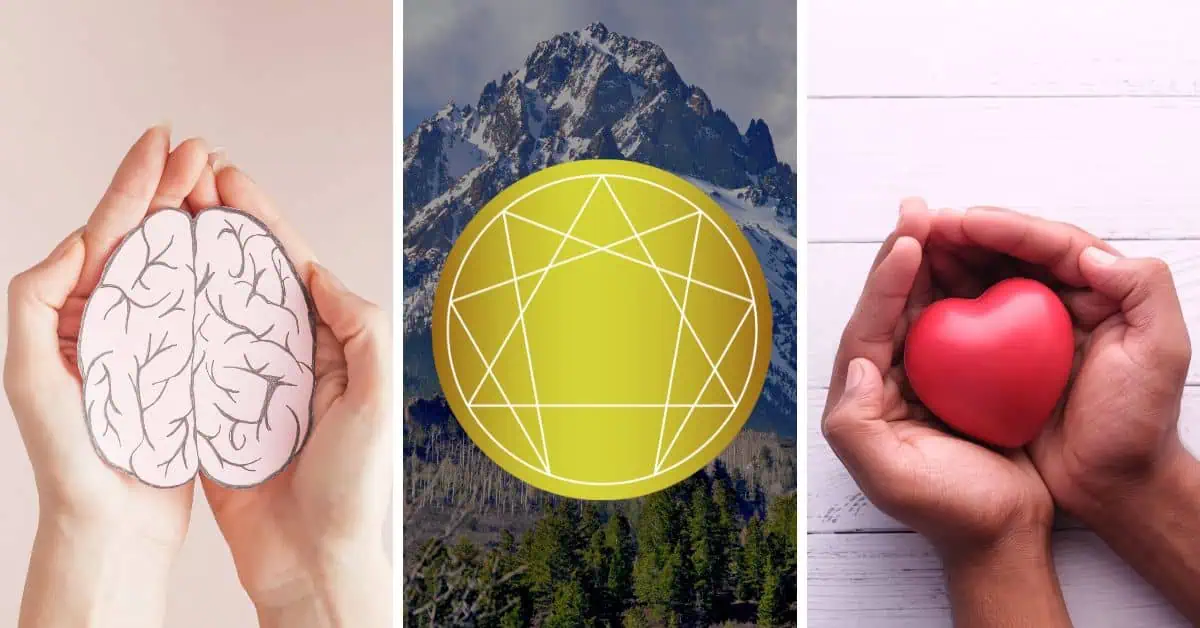
Not sure what your Enneagram type is? You can take our online questionnaire here.
If you’re not sure what the Enneagram is and want more information, you can check out this article: What Is the Enneagram?
Table of contents
The Nine Enneagram Types of the ENTJ

The ENTJ Enneagram 1 Type
Core Fear: Being evil, bad, or corrupt
Core Desire: To be good and to have integrity
The ENTJ One has strong personal convictions and guidelines by which they examine their life. They are more idealistic than the typical ENTJ, with ambitions to make the world a better place and improve everything around them. Dissatisfied with any kind of stagnancy, they are often workaholics who feel an incessant need to tend to every responsibility and be the best version of themselves. These ENTJs have an opinion about nearly everything, but the healthier they are, the more conscientious and accepting they can be. The defining trait of this One is the desire to be better; to be the best they can be. Not because they want esteem (although everyone likes that to an extent) but because they want to live up to their inner code of ethics and ideals. Ones often have a nagging inner critic inside their mind that is harsh with them over any type of failure (and sometimes others’ failures as well). They strive to keep the dark, more chaotic side of their personality in check and only give space to the goodness inside them. However, this can be a harsh struggle and one where Ones are perpetually reigning themselves in and stifling some of their more natural instincts.
The ENTJ One in Childhood:
In childhood, Ones often felt that they couldn’t depend on the protective figure in the home. There was a sense that they couldn’t rely on the structure or dependability of their family unit. Thus, Ones learned to police themselves and to create a code of ethics that was extremely rigorous.
“This created in Ones a relentless superego mechanism whose constant message is “You are not acceptable as you are; you must be better, always better.” – Don Richard Riso with Russ Hudson, Personality Types: Using the Enneagram for Self-Discovery
Ones are in the Body/Anger triad of the Enneagram, which means they tend to have underlying issues with rage. Yet they push themselves to control their anger and to stifle it. They see anger as a “bad” emotion and one that must be controlled at all costs. Thus their anger tends to slip out in critical remarks, judgments, clenched teeth, balled up fists, and physical tension.
Unhealthy Ones Can Be: Self-righteous, hypocritical, severe, dogmatic, intolerant, inflexible, condemnatory, punitive, cruel, depressed, prone to black-and-white thinking.
Average Ones Can Be: Idealistic, responsible, orderly, organized, emotionally constricted, impersonal, rigid, picky, judgmental, perfectionistic, critical, opinionated, impatient.
Healthy Ones Can Be: Accepting, conscientious, honest, rational, reasonable, self-disciplined, responsible, patient, principled, fair, wise, discerning, realistic, humane, inspiring, hopeful.
Read This Next: The Enneagram 1 -The Perfectionist
The ENTJ Enneagram 2 Type
Core Fear: Of being unlovable or worthless
Core Desire: To be loved for who they are.
Two is one of the rarest Enneagram types for ENTJs, but it still does show up from time to time. ENTJ Twos seem much warmer and more emotionally in tune with others than the typical ENTJ. They value diplomacy, see the logic in it, and know that everyone working together in harmony is better for their overall objectives than being detached. These ENTJs want to have positive interactions with others, to feel needed, helpful, and valued. Often they help people by providing solutions and giving pragmatic advice. It’s not enough to simply have “good vibes” with someone, they want to troubleshoot and give logical solutions.
These ENTJs believe that if they love others enough and help them enough, that others will love them in return. Sometimes this can result in manipulation; they give only to receive love in return. The healthier the Two is, the more they can develop healthy boundaries and give selflessly without an ulterior motive. These Twos show us that the stereotypes about thinkers being “cold” or “uncaring” are completely false. ENTJ Twos care deeply about others, and will show it through insights, logical action plans, and practical support, especially during hard times. They genuinely want to help people and go out of their way to do real good.
The ENTJ 2 in Childhood:
In childhood, ENTJ Twos were taught to put others’ before themselves. Selflessness was praised, taught, or even preached to them. This created in them the feeling that in order to be valuable or loved they must give tirelessly. This often resulted in an inability to set boundaries, and they often believed that they had to earn the affection of others through selfless acts. As dominant thinking types, the ability to read others’ emotions didn’t necessarily come naturally. Thus they spent a great deal of time tapping into the less-valued functions of their type; trying to understand what was important to people and what selfless acts they could endeavor while staying true to themselves. They hoped by being helpful, generous members of the family, they would earn their place.
Twos are in the Heart/Shame triad of the Enneagram. They worry that if they don’t serve selflessly enough that they will lose their relationships or be unlovable. On the flipside, they may be prideful because they think that others wouldn’t be able to make it without them.
Unhealthy Twos Can Be: Self-serving, manipulative, selfish, domineering, entitled, resentful, belittling, self-deceptive about their own motives, making others feel indebted to them, giving to get, attention seeking, clingy, overbearing, exhausted, insecure, prideful.
Average Twos Can Be: Friendly, talkative, possessive, self-sacrificial, self-important, patronizing, overbearing, presumptuous, caring, responsible, nurturing, complimentary.
Healthy Twos Can Be: Compassionate, outgoing, warm-hearted, kind, sincere, dedicated, supportive, generous, giving, altruistic, joyful, gracious, humble, imaginative, creative, insightful.
The ENTJ Enneagram 3 Type
Core Fear: Of being worthless without success or achievement.
Core Desire: To feel successful and desired.
Driven by the pursuit of excellence, ENTJ Threes are goal-focused and hardworking. They believe that by achieving their objectives and exemplifying the qualities that are honored in their culture they will be worthwhile. Energetic and charming, they usually know how to work well with people and make a good first impression. Knowing what people want and understanding where they stack up among their friends and co-workers is important to them. They are often competitive, and no matter what job they’re in they’ll find a way to make a game out of trying to be the best there.
These ENTJs may seem more charming and skilled with people than some other ENTJs. Because of their Three nature, they know what is socially considered the “best” way to be with people and they can often tell what angles people have, or what they want. The healthier the Three is, the more authentic, modest, and benevolent they can be. The unhealthier they are, the more unprincipled, exploitative, and deceptive they can be.
The ENTJ 3 in Childhood:
In childhood, Threes learned that they needed to be highly responsive to the emotions of others. They learned to adjust themselves for others and tune into others’ desires in order to feel worthwhile. When they were given praise or acclimation they would feel like “Finally, I’m okay. I’m loved. I’m worth it.” And so they would continue to strive to achieve and to be a success and to charm people.
Because Threes are in the Heart triad of the Enneagram, they experience issues with shame. Yet unlike the Two or Four, they are often disconnected from their feelings. As ENTJs especially it can be difficult for them to know who they are underneath all their work and “doing.” They are so focused on getting things done that it can feel nearly impossible to know their core, heart-felt needs, desires, and vulnerabilities. Reflecting on their own emotions can feel like a waste of time to them until they reach a healthy level of maturity.
Unhealthy Threes Can Be: Exploitative, dishonest, unprincipled, covetous, exaggerative, jealous, sabotaging, workaholics, relentless, arrogant, insecure, empty, overly-competitive, attention-seeking.
Average Threes Can Be: Pragmatic, hard-working, efficient, competitive, arrogant, insecure, ambitious, creative, visionary, restless, self-doubting, compare themselves to others, status-seeking, image-conscious.
Healthy Threes Can Be: Energetic, honest, adaptable, goal-oriented, persistent, authentic, modest, benevolent, generous, visionary, inspiring, empathetic, imaginative.
Read This Next: The Enneagram 3 Child
The ENTJ Enneagram 4 Type
Core Fear: Of being without identity and/or insignificant
Core Desire: To find their own significance and identity
Fours who also have the ENTJ personality type tend to be passionate and individualistic. These Fours will develop insights, visions, and ideas that are emotionally profound and then put all their strategic prowess and planning abilities into making those ideas real. They want to get things done; to put their “pedal to the metal” and create art, heighten reality, and live at the peak of their potential.
The Four, Two, and Nine are likely the rarest types for the ENTJ, so it’s highly uncommon to see one. That said, I have met them and they are a delightful contradiction of qualities. These ENTJs are more in touch with their inferior function, Introverted Feeling, than other ENTJs. They strive to be self-aware and to face the darkness within; using what they find to be creative, expressive, and to build something valuable and profound in the world. Even though they are extroverts, they often appear more introverted than the typical ENTJ. The objectives they aim to reach revolve around personal expression and the meaning and significance of life itself. They can be visionary counselors or driven artists, balancing the emotional depth of the Four with the objectivity and no-nonsense ambition of the ENTJ.
Life isn’t easy for an ENTJ Four. Often the ENTJ preferences and Four preferences battle with each other, creating some inner conflict. But if this type can learn to make harmony with the various contrasting parts of themselves, they can be powerfully multi-faceted and aware.
The ENTJ 4 in Childhood:
In childhood, Fours often felt like foreigners in their families. They often felt misunderstood or alien, as if they didn’t belong. This may have been unintentional from the parents; it’s not always a sign of abuse or neglect. But either way, the Four focused on what made them different, and tried to push through the darkness of their feelings in order to cope. Finding their identity became their driving goal as a way to make peace with the sadness and loneliness that came from feeling so different.
Fours are in the Shame/Heart triad of the Enneagram. However, unlike the other two types in the heart triad, they face their shame and explore it as deeply as they can. It’s crucial for Fours to not get lost in their shame and to realize that even if they feel an emotion strongly, it isn’t always the truth.
Unhealthy Fours Can Be: Angry, depressed, alienated, ashamed, fatigued, tormented, blaming, self-destructive, self-indulgent, self-absorbed, wasteful, apathetic, lost in fantasies.
Average Fours Can Be: Artistic, creative, idealistic, hypersensitive, self-conscious, imaginative, insightful, introspective, sensitive, visionary, envious, melancholy, self-absorbed.
Healthy Fours Can Be: Sensitive, intuitive, self-aware, emotionally strong, gentle, compassionate, individualistic, inspired, creative, eloquent, grateful, accepting, driven.
The ENTJ Enneagram 5 Type
Core Fear: Being incompetent or overwhelmed.
Core Desire: To be competent and capable.
This ENTJ Five is someone who is more fixated on thinking than doing. He may organize and re-organize his room, his office, or other personal spaces, but feel hesitant to go and make the big changes that other ENTJs are more apt to embrace. These ENTJs are extremely focused on competence and knowledge. Being a master in their field is a goal they nearly always want to reach. Because of this, they are often seen as “gurus” or “experts” who enjoy chatting about philosophies and theories over coffee or drinks.
Thanks to their Extraverted Thinking function, they want to draw and map out their thoughts. They often have diagrams, spreadsheets, and other external ways of organizing their thoughts. Often, they’ll argue with themselves out loud or find people to debate their thoughts with in order to find clarity. However, there’s an inner anxiety that this type has when it comes to the outside world. Deep down they worry that the world is unpredictable and threatening, and that they may not function well there. Instead, they gather and accumulate information and insights. They are typically very in touch with their introverted side; particularly the intuitive side of their personality. When they have the urge to take action, they often tell themselves to slow down, to pause and let their mind wander over various perspectives and inner ideas and possibilities first.
The ENTJ 5 in Childhood:
In childhood, ENTJ Fives wanted to find their place within the family system but often felt it wasn’t there. They felt that if they developed some niche expertise that they’d belong that would bring them a sense of nurturance. For whatever reason, however, they grew to believe that nothing they could do was enough. So they withdrew from participation in the family and became focused on hoarding knowledge and expertise so that they could feel confident enough to step out into the world and be prepared.
Fives are in the Head/Fear triad of the Enneagram. They handle their fear by withdrawing and gathering information. The more knowledge they attain, the more they believe they can confront their fears with competence.
The Unhealthy Five Can Be: Reclusive, eccentric, nihilistic, self-destructive, pessimistic, aloof, stuck in analysis-paralysis, fearful, argumentative.
The Average Five Can Be: Detached, intense, high-strung, antagonistic, cynical, argumentative, imaginative, studious, intellectual, cerebral, creative, private, conceptual, observant, intelligent.
The Healthy Five Can Be: Perceptive, insightful, alert, observant, original, imaginative, skilled, inventive, independent, visionary, open-minded, innovative, whimsical, competent, strong, grounded, clear-minded, curious, productive.
The ENTJ Enneagram 6 Type
Core Fear: To be without support or security. To be abandoned.
Core Desire: To find support and security.
The ENTJ Six is full of contradictions and surprises. Some Sixes are very community-focused and respectful of authority, while others are more rebellious and antagonistic towards authority. They want to belong, but they also want their independence. They want to trust, but they feel compelled to test people and be skeptical. Security is crucial to them, but they tend to feel insecure. One day they can be warm and friendly, the next day they can be cold and angry.
The healthier the Six is, the more self-affirming, consistent, self-led, and courageous they are. The unhealthier they are, the more fearful, hot-and-cold, and self-destructive they can be. Ultimately, Sixes want to find their place in the world around them; to find where they belong and who they can trust. They test others to see whether they can hold up to scrutiny.
Thanks to their intuition, the ENTJ Six can easily forecast how things will play out and can mobilize people and resources to create a safer or more stable world. Healthy ENTJ Sixes are often courageous leaders; supporting others, making tough decisions with grace, and creating stability and security in the world.
The ENTJ Six in Childhood:
In childhood, Sixes became especially connected to the protective figure in their life (often the father, but not always). They wanted to have the protection and approval of the protective figure and felt anxious and insecure when they didn’t receive it. As they got older, Sixes looked for other protective figures or communities where they could belong and feel safe. ENTJs who experienced this protective figure in a negative way (either intentionally or unintentionally from the figure) feel the need to test authority and react assertively against it.
Because Sixes are in the Head/Fear triad, they struggle with chronic issues of anxiety. They have difficulty trusting their own minds and often look outside themselves for guidelines, communities, or authorities that feel strong and unshakable. This is a conflict for them, however, because they are also anxious about trusting in anything or anyone that might let them down. Due to this dilemma, especially at average to unhealthy levels, they feel constantly insecure. Once Sixes reach healthy levels of maturity they start to trust their instincts and form lasting bonds and relationships with others.
Unhealthy Sixes Can Be: Unpredictable, dependent (in phobic Sixes), self-disparaging, submissive (in phobic Sixes), fearful, complaining, self-destructive, confrontational (in counter-phobic Sixes), delusional, paranoid, insecure, testy, panicky.
Average Sixes Can Be: Organized, structured, committed, responsible, vigilant, detail-oriented, passive-aggressive, evasive, indecisive, authority-seeking (in phobic Sixes), authority-questioning (in counter-phobic Sixes), dutiful, hard-working, pessimistic, cautious.
Healthy Sixes Can Be: Courageous, reliable, responsible, practical, grounded, disciplined, hard-working, serene, trustworthy, friendly, positive, cooperative, persevering, intuitive, insightful.
Read This Next: The Enneagram 6 – The Loyalist
The ENTJ Enneagram 7 Type
Core Fear: Of being in pain, trapped, of missing out.
Core Desire: To be happy and to have their needs fulfilled.
ENTJ Sevens are quick thinkers who want to grasp every moment that life has to offer them. They move quickly, take action fast, and enjoy achieving their goals and moving on to newer and better goals. Being entertained, being happy, and discovering new opportunities is so crucial to them that they can get distracted from current projects as newer and better possibilities play before them. ENTJ Sevens tend to be more long-term focused than typical Sevens. They easily anticipate the outcomes of what they’re doing and put intuitive foresight into their activities. Thus they seem less spontaneous and impulsive than most Sevens. That said, they still like to take action and don’t enjoy waiting; they’ll take a few moments to consider the consequences of something, but usually not much longer than that. Usually a thirst for adventure is close to their heart and they like to stay busy with challenges, competitions, and projects.
The Enneagram 7 in Childhood:
In childhood, Sevens tended to experience a distance between themselves and the nurturing figure in their life (often the mother, but not always). They tried to cope with this distance by finding distractions: games, toys, activities, ideas, and/or jokes. This pattern played out into adulthood, and adult Sevens still try to distract themselves from their vulnerabilities and struggles with fun distractions or humor. ENTJ Sevens may balk at the idea of difficult heart-to-heart discussions, because they’re used to finding a distraction – not actually dwelling on the pain in their hearts. That said, as Sevens mature and grow, they usually become much more self-aware and more patient with the introspection needed for growth.
Sevens are in the Head/Fear triad of the Enneagram, so they have underlying issues with anxiety. They try to cover up their anxieties with distractions instead of facing them head-on through vulnerability, introspection, and contemplation. That said, as ENTJ Sevens mature they become more vulnerable, authentic, and self-aware.
Unhealthy Sevens Can Be: Escapists, Hedonistic, Reckless, Joyless, Childish, Scattered, Unstable, Overwhelmed, Impulsive, Infantile, Erratic, Compulsive, Self-Destructive.
Average Sevens Can Be: Impatient, Imaginative, Creative, Excessive, Enthusiastic, Distracted, Adventurous, Materialistic, Self-Centered, Reckless, Skilled at Multi-Tasking.
Healthy Sevens Can Be: Responsive, Grateful, Joyful, Satisfied, Grounded, Bold, Visionary, Realistic, Charismatic, Appreciative, Helpful, Profound.
The ENTJ Enneagram 8 Type
Core Fear: Being controlled or violated
Core Desire: To pave their own way in life and to protect themselves
Eights are one of the more common types for ENTJs. In fact, this type is so common for ENTJs that sometimes ENTJ descriptions are written like Eight descriptions, and then ENTJs who don’t resonate with the Eight Enneatype feel they can’t possibly be ENTJs.
ENTJ Eights want to dominate their environment; to have absolute autonomy so that nothing can have power over them or control them. Of all the types of the Enneagram, these types are the most obviously aggressive. They are connected to their instincts and don’t mind taking-charge, in fact, they love taking charge. Strong-willed and charismatic, they fight to endure against the odds and survive. They want to achieve their goals, and if they’re healthy, those goals will often help others.
Healthy Eights can be extremely protective; fighting for the underdogs and speaking out against injustice. Unhealthy ENTJ Eights can be aggressive, violent, and controlling. These types speak their minds, get things done, and will stop at nothing to achieve their objectives and feel a sense of power and authority over their own lives.
The ENTJ Eight in Childhood:
In childhood, Eights felt ambivalent towards the nurturing figure in their life (often the mother, but not always). They often learned that if they acted the part of the protective figure (often the father) that they could maintain some connection to the nurturance and warmth they needed. Thus they strived to be the “strong” one, the unshakable one. They felt that it was their responsibility to be decisive, handle the big problems, and overcome hardship and struggle.
Eights are in the Body/Anger triad of the Enneagram. They give into their instincts. Unlike the One, who tries to suppress their anger, Eights express their anger visibly. However, they are less able to express their more vulnerable instincts. It’s a struggle for them to express their sensitivity or their need for warmth or help or empathy. Instead, they show a tough outer self to the world so that nobody can betray them.
Unhealthy ENTJ Eights Can Be: Bossy, Destructive, Controlling, Violent, Aggressive, Hardened, Authoritative, Confrontational, Vengeful, Rejecting, Dictatorial, Hard-hearted.
Average ENTJ Eights Can Be: Protective, imposing, confrontational, forceful, boastful, proud, individualistic, self-sufficient, risk-taking, hard-working, independent, enterprising, pragmatic.
Healthy ENTJ Eights Can Be: Self-confident, assertive, providing, protective, merciful, magnanimous, strong, initiative-taking, hard-working, decisive, resourceful, passionate, courageous, visionary, forbearing, generous, authentic.
Read This Next: The Enneagram 8 – The Challenger
The ENFJ 9 Enneagram Type
Core Fear: Fragmentation and/or separation.
Core Desire: Inner harmony and peace of mind.
Nines want to enjoy the flow of the moment and experience a sense of oneness with their experience. Creating outer harmony helps them to experience inner harmony. Although this type is rare for an ENTJ, they do exist.
ENTJ Nines are receptive to the world around them; they see opportunities and take advantage of them. But they are more easy-going than most ENTJs. Rather than feeling rushed, they want to feel calm and peaceful. Feeling equilibrium with themselves is crucial and they spend their lives seeking after it. Dealing with problems right away is important to them so that they can get back to feeling this equilibrium. Tackling a to-do list is crucial because they don’t want anything hanging over their head.
These ENTJs are interested in developing themselves and their potential and investing their time and energy into their talents and skills. More laid-back than the average ENTJ, they still have a vision, goals, and drive, but they also know how to take time for relaxation and imagination. These Eights run their lives as efficiently as they possibly can so that they can allow themselves to have free time to simply exist and be.
The ENTJ Nine in Childhood:
In childhood, Nines learned that the best way to handle turmoil in their environment was to “disappear” or emotionally vacate. Early on, they practiced dissociating from threatening or disruptive events and making themselves low-maintenance so they wouldn’t impede on anyone or make things worse. They felt that if they asserted themselves or got angry they would only make things worse. So they stayed in the background, repressed their feelings, their will, and their desires.
Nines are in the Instinct/Anger triad of the Enneagram. Yet unlike Eights, they don’t express their anger. They try to numb themselves to it. Over time the anger tends to build and build until they explode. Others might be shocked when the typically calm Nine bubbles over with fury after they’ve repressed their frustrations for a very long time.
Unhealthy Nines Can Be: Withdrawn, Ineffectual, Depressed, Unrealistic, Dissociated, Disoriented, Numb, Helpless, Neglectful, Lazy, Repressed, and/or Listless.
Average Nines Can Be: Agreeable, Compassionate, Amicable, Disengaged, Open-Minded, Deflecting, Resigned, Appeasing, Complacent, Dismissive of Pain.
Healthy Nines Can Be: Patient, Level-Headed, Imaginative, Dynamic, Present, Inspiring, Self-Possessed, Serene, Easy-Going, Kind, Patient, Peaceful, Comforting, and/or Spiritual.
What Are Your Thoughts?
Did you enjoy this article? Are there any thoughts or insights you’d like to share? Let us know in the comments!
Want to Master the Art of People-Reading & Harness Your Personality Powers?
Whether you’re trying to identify your strengths, enjoy a better relationship with your partner, or experience less stress, knowledge of personality type is a powerful tool for self-understanding and connection with others. MBTI® certified practitioner and Psychology Junkie founder Susan Storm has spent over a decade coaching individuals and writing about personality type. She can give you insight into how your mind works, how to harness your natural gifts, and how to have more effective relationships with the diverse people in your life.
Want to take the first step to a fuller understanding of yourself and the people you love? Discovering You: Unlocking the Power of Personality Type provides in-depth, empowering, and applicable knowledge about how your mind works (as well as all 16 types in the Myers-Briggs® system).
You can also take a deep dive into one specific personality with these three books:
The INFJ: Understanding the Mystic
The INFP: Understanding the Dreamer
The INTJ: Understanding the Strategist
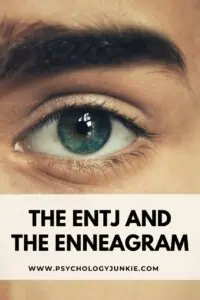








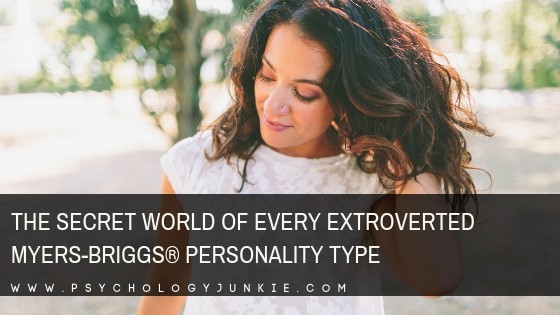
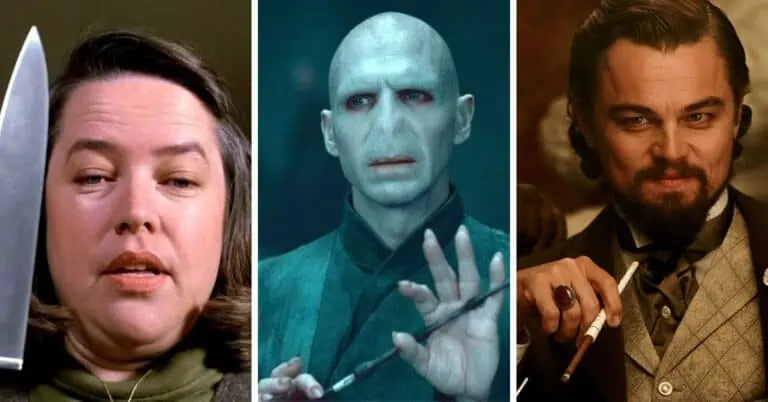
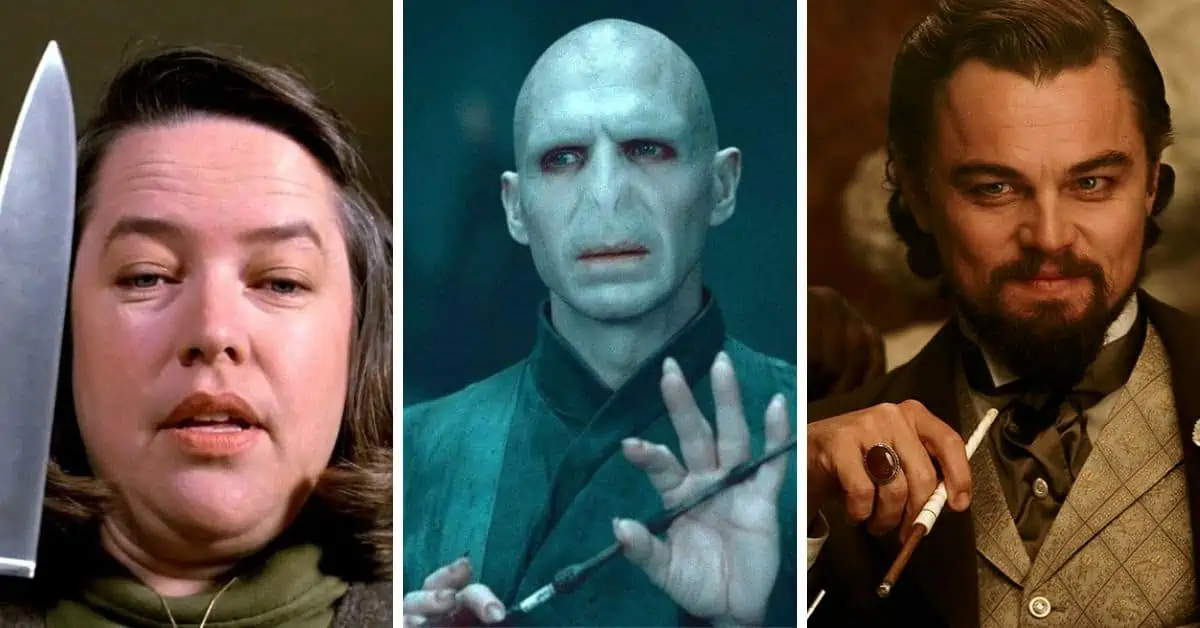


I enjoyed the detailed and well written comparisons of each enneagram for ENTJs. There is certainly a lot of difference between myself (1) and the more common 3’s and 8’s, who seem much more extroverted than I am.
P.S. There is a typo in the title for ENTJ 9 Enneagram. “The ENFJ 9 Enneagram Type”
This is the only place I can find that takes the possibility of ENTJ Type 9 seriously!
Agreed! Everyone says it’s ‘impossible’ to be an ENTJ AND a 9, but I’ve explored every other aspect and this is the only shoe that fits! I had my MBTI done professionally so I know that’s correct.
it is possible that an entj is enneagam 9 or 4. It’s not going to happen. my enneagram type: 4w5 and I have the entj personality type. Every person in the world is different. Accepting this is something that people with personalities like me will easily understand and accept.
Apparently, I am a ENTJ 4w3
When are you going to do all of the other MBTI types? It’s been over a year.